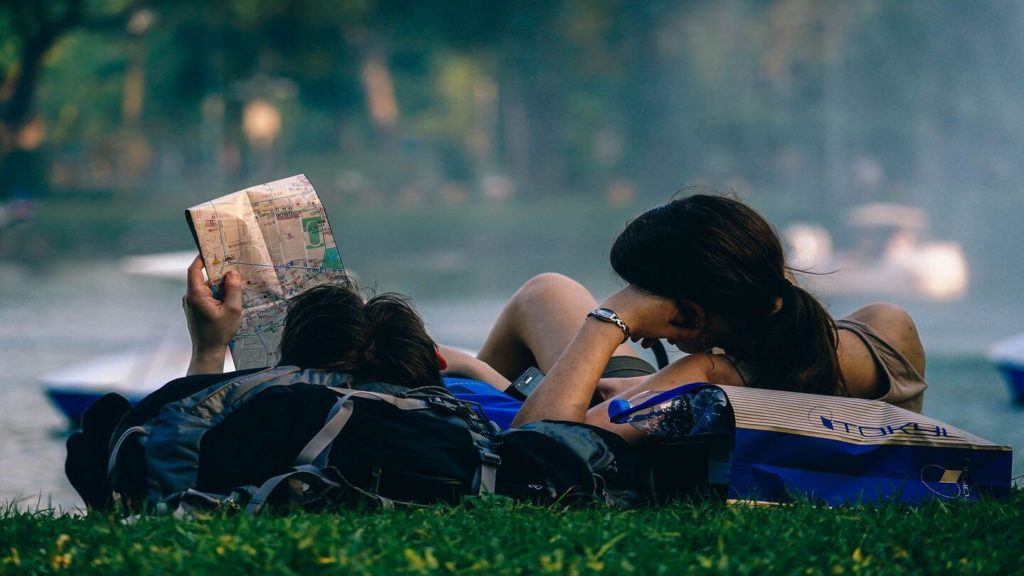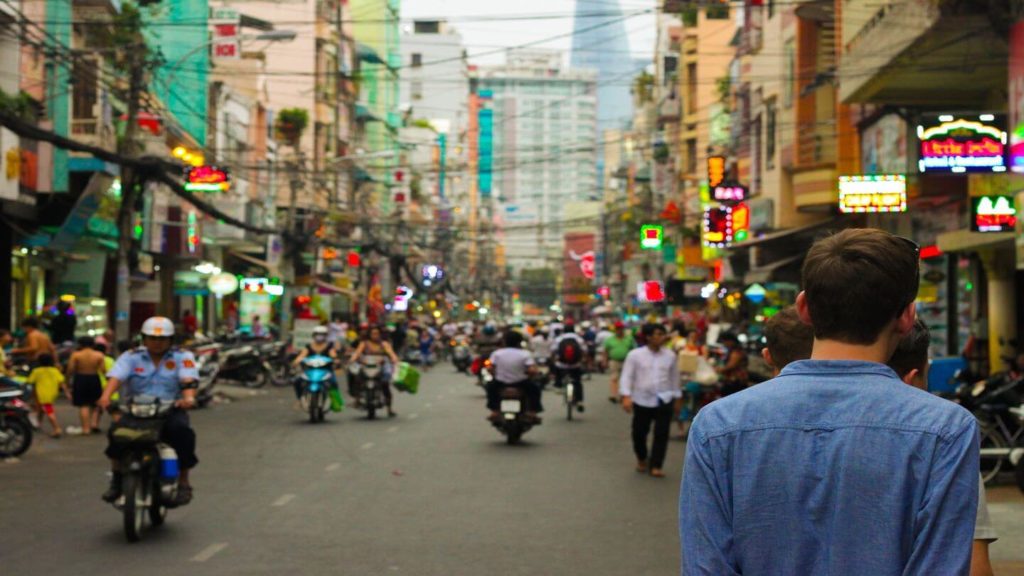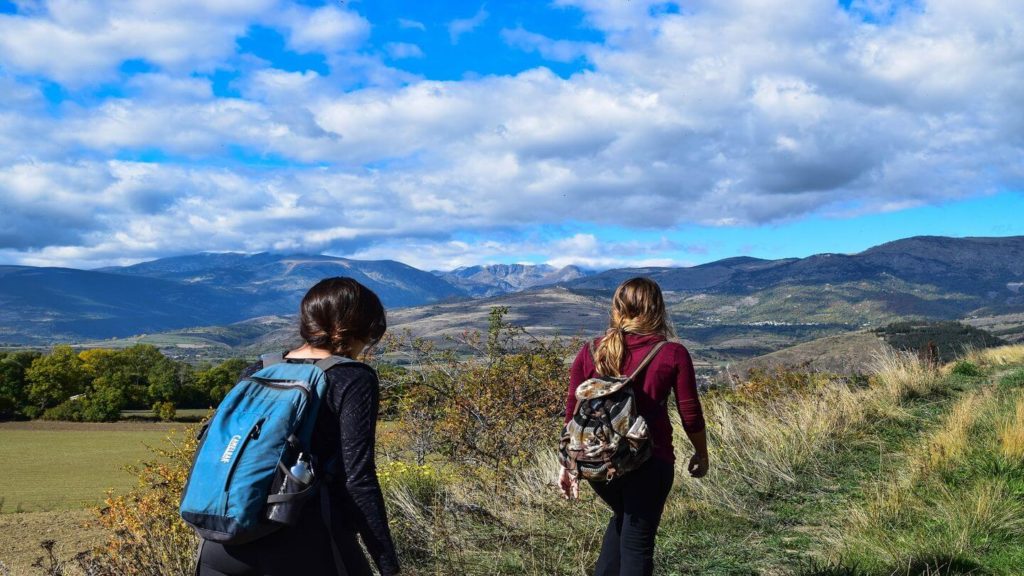It’s easy to get caught up in the excitement of travel, but it’s also important to think about your safety on your trip. Whether you get sick or fall prey to pickpockets, anything can happen on your travels – but you can prepare by staying informed and trusting your instincts. If you’re wondering how to stay safe, follow our top 12 travel safety tips, and make your next trip unforgettable for all the right reasons.
1. Do your research


The first rule of safe travel is getting to know your destination before you arrive. Do your research to learn about the country, political climate, cultural norms and taboos, and the safest neighbourhoods and accommodation for travellers. The first place to check is your government travel website where you’ll find country updates and travel safety advice and warnings.
2. Write down emergency info
If an emergency strikes while travelling, you might not have time to search for the numbers for local police, ambulance or embassies. Instead, look up the emergency services numbers before you get to your destination. Save them in your phone, and write them down on a small card that you can keep in your wallet.
That way, you’ll always know exactly who to call in an emergency. It’s also helpful to learn some basic emergency phrases in the local language like “I need help” and “where is the nearest hospital?”
3. Register with your embassy


Many governments have a traveller enrolment program, designed to keep you updated with safety information and let your destination’s local embassy know that you are travelling in that country. All you have to do is sign up and you’ll get regular updates and travel safety tips for your destination.
In the event of an emergency like a natural disaster, your local embassy will know you are in the country and will be able to contact you quickly to share information or arrange your evacuation.
4. Learn about common travel scams
Almost everywhere you travel, you’ll find local con-artists who are ready to scam you out of your cash. A quick Google search will let you know what the local scammers are up to in your destination, and how to avoid them.
No one thinks they’ll fall for a scam but it can happen, so it’s best to be prepared. Some common scams include the broken taxi meter, the free bracelet, the group photo offer, the overbooked hotel, motorbike rental damage, fake tickets, or using children to distract you.
RELATED CONTENT: These are the safest travel destinations to visit in 2020
5. Get travel insurance


You never think you need travel insurance – until you do. Everyone needs travel insurance, no matter how long your trip is or where you go. Travel insurance gives you peace of mind in all kinds of unexpected scenarios like injuries, illness, theft or loss of valuables.
Nobody expects to lose their expensive camera, or fall ill in a foreign country and get slammed with a big hospitable bill. But it can happen to anyone, no matter how careful you are. Remember, if you can’t afford travel insurance, you can’t afford to travel.
6. Don’t draw attention


Try to blend into your surroundings and avoid looking like an obvious tourist. Wearing flashy jewellery and inappropriate clothing will make you stick out like a sore thumb, meaning you’re more vulnerable to scammers and pickpockets. Be sure to do your research before travelling to find out what kinds of clothes the locals wear, then follow suit.
Not only is this a great travel safety tip, but it’s also a sign of respect for local customs and will help you avoid offending the locals. In general, it’s best to dress modestly, avoid public displays of affection, and leave expensive jewellery at home.
RELATED CONTENT: 9 ways to ensure you’re a culturally sensitive traveller
7. Keep your valuables locked up


It’s best to travel without valuables like jewellery and expensive gadgets, but there’s always something you’ll need to keep safe like your passport and cash. The good news is that there are plenty of ways to keep your stuff safe.
Get a sturdy lock for your luggage, but choose one that doesn’t stand out too much. Buy a slash-proof bag so it can’t be cut open and raided, and bring a cable tie or carabiner clip to tether it to your seat when eating out or travelling on buses and trains. Lastly, don’t keep any cash or valuables in your back pocket – it’s the first place a pickpocket will check.
8. Be smart about your money


Two of the most important money travel safety tips; never carry large amounts of cash (carry an international bank card and use local ATMs when you need cash), and never keep all your money and bank cards in one place. Keep your cash and cards in two or three different places, like your hotel safe or hiding spots in your bag. That way, if you one of your stashes gets stolen, you’ll still have some leftover.
Make sure you notify your bank of your travels before leaving, so they don’t block your card for suspicious activity. Do your research beforehand to find out the best spots to exchange money, or if your destination has reliable ATMs. There are several ways you can keep yourself safe when using ATMs in a new destination. Cover your hand when keying in your PIN number, and always take a closer look at the ATM before using it. If anything feels off, go inside the bank. You can withdraw your cash there or get someone to come and check the machine.
9. Tell someone where you’re going and check in regularly


Before you travel, make sure you tell trusted friends or family where you’re going and when you should be back. Check in with them regularly and keep them updated on your plans while you’re travelling too. If they don’t hear from you, they can notify the local authorities and your embassy and give them important information. You’ll get help faster if someone knows where you were supposed to be.
10. Make copies of important documents
Your passport may be the most important thing you carry on your travels. If it ever gets lost or stolen, having a digital copy will help the process of getting a replacement passport much easier. Always scan your important documents (including driver’s licence and insurance details) and save them to your email or an online dropbox. That way, you can access your documents anywhere in the world.
11. Travel in numbers


Travelling in a group is generally safer than going it alone. You’ve got more people around you and more eyes on your valuables. It’s also a deterrent to scammers and pickpockets who are more likely to go after solo tourists.
If you’re travelling alone, consider joining a trusted group tour. You’ll likely make some new friends and you’ll feel much safer with an expert tour guide, who can also share some local travel safety tips.
12. Trust your instincts
It’s easy to dismiss your instincts, but you should never ignore them. Your body has an ability to sense danger, so if you’re feeling uncomfortable and don’t know why, stop and pay attention to the situation. If someone or something is making you feel uneasy, there’s most likely a reason. Our instincts have been keeping us safe for millions of years, so always listen to your gut feeling. It will help you stay safe.
Have you got any great travel safety tips? Let us know in the comments below!